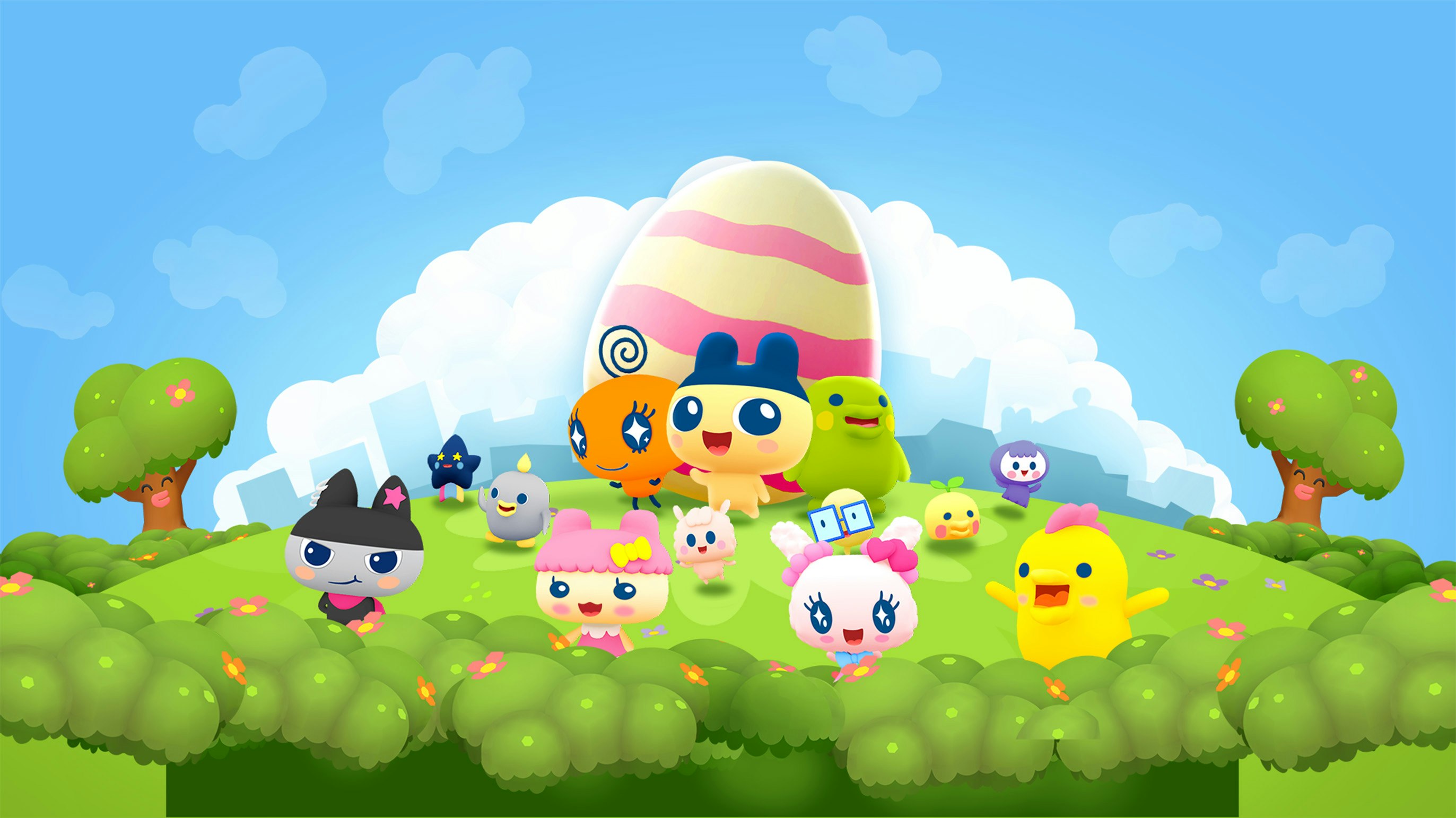Bandai Namco Mobile’s 4-Day Workweek Puts Well-Being First
Working Smarter, Not Longer
After running a trial last year, we are very pleased to announce that we’ve implemented a permanent 4-day workweek at our Bandai Namco Mobile (BNM) studio in Barcelona. Here at BNM, we’re always excited to take on new challenges and find innovative ways to run our studio. From the very beginning, we’ve offered our teams unlimited holidays, hybrid work, and no set working hours in order to help them maintain a healthy work-life balance. After all, we believe that our motto, ‘Fun for all into the future’, shouldn’t just apply to our games, but to the process of making them as well.

After looking at the results of four-day workweek experiments in Canada, Iceland, and the UK, we became confident that this change would be a benefit to both our studio and our employees.
We figured, why not launch our own trial and give this a try?
Our teams were overwhelmingly enthusiastic about this from the start. Who doesn’t want fewer meetings and a 3-day weekend? But beyond that, everyone was looking forward to trying something new. Many of our employees really appreciated the idea of spending less time on meetings and finding new ways to automate some of their daily tasks so they could focus their time and energy on the more interesting and creative aspects of making games.
So, we became one of the first game studios in Europe to shift to a 4-day workweek. We began closing our offices on Fridays, and having our teams work from Monday to Thursday. There was no increase in the amount of hours worked on the remaining days, and no changes were made to pay or benefits. The idea was to work smarter during those remaining four days in order to keep our productivity levels up.
To get this done successfully, we needed to make some changes to how we do things around the office.

This gave BNM the opportunity to confront our inefficiencies on a studio-wide scale and change the way we do certain things. We started re-evaluating how we prioritize tasks and looked into automating some of our day-to-day activities.
This process led to some major shifts in our mindset as we set out to improve our processes and workflows right down to the level of the individual team member. We always strived to be an agile and adaptable company, even when we had a 5-day workweek, but this really pushed us to work smarter and more efficiently than ever. The solutions we came up with improved our productivity, ultimately bringing down our stress levels and creating a healthier working environment.
We redefined the role of data analysts in our marketing team, which helped set roadmap priorities more effectively, improved our approach to data management, and automated certain tasks, such as ad-hoc analysis and reports. We built powerful new dashboards with lightning-fast pivot tables and charts, allowing our Performance Marketing Managers to gain insights from complex data sets in milliseconds.

For our visual artists, rendering time could be a frustrating and time-consuming part of the workflow. To speed things along, we developed a custom After Effects render queue tool, which improved rendering time by up to 60%.
Running the tool on a dedicated rendering PC armed with high-end processors and graphics cards allows us to produce more high-quality work in a shorter amount of time.
Another great example of workflow innovation came from our game development team, which started making use of Excel for prototyping. Excel combines the easy modification of a paper prototype and the automatic housekeeping and randomization of a digital prototype to give our team a powerful productivity boost. Though it depends on the task, we can now generally produce a fully playable testing experience in three days using a single team member.
In addition to making these changes, we also asked ourselves a very important question: Are all of these meetings really necessary?
So, we turned some of our weekly meetings into biweekly and cut some of our hour-long meetings down to thirty minutes. Our shift in mindset was really helpful here. We committed to being clearer about the purpose of our meetings and strove to begin each one with a clear agenda and end it armed with a set of actionable next steps. These changes allowed us to keep distractions to a minimum so we could make more efficient use of our time.
To track our progress, we put out studio-wide surveys every six weeks during the trial. Employees were asked to rate four aspects of their jobs on a scale of 1-10: creativity, productivity, stress level, and work-life balance. This provided us with important data while giving our teams a chance to let us know what they liked (or didn’t like) about the 4-day workweek. And it turns out that there wasn’t much not to like. Most of the feedback throughout the trial was very positive.
Early on, the 4-day workweek had a noticeable impact on our teams’ creativity.
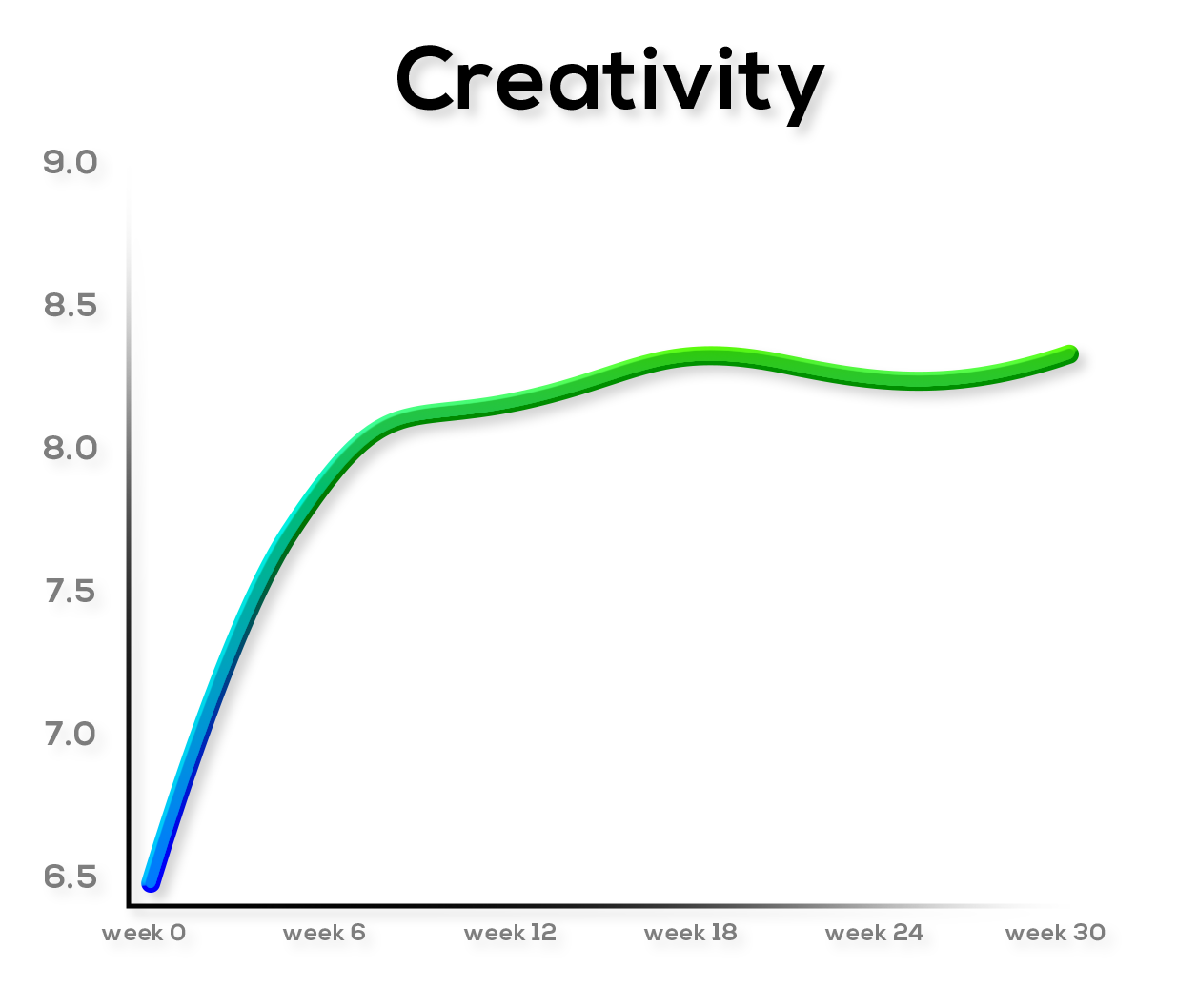
Our employees reported a 22% increase in their creativity levels in the first six weeks, which was sustained throughout the course of the trial.
Even early problem areas showed quick improvement. As everyone was still adjusting to the change at the beginning of the trial, our employees were not particularly happy with their productivity levels.
But within six weeks, they were reporting a 12% increase compared to the first week.
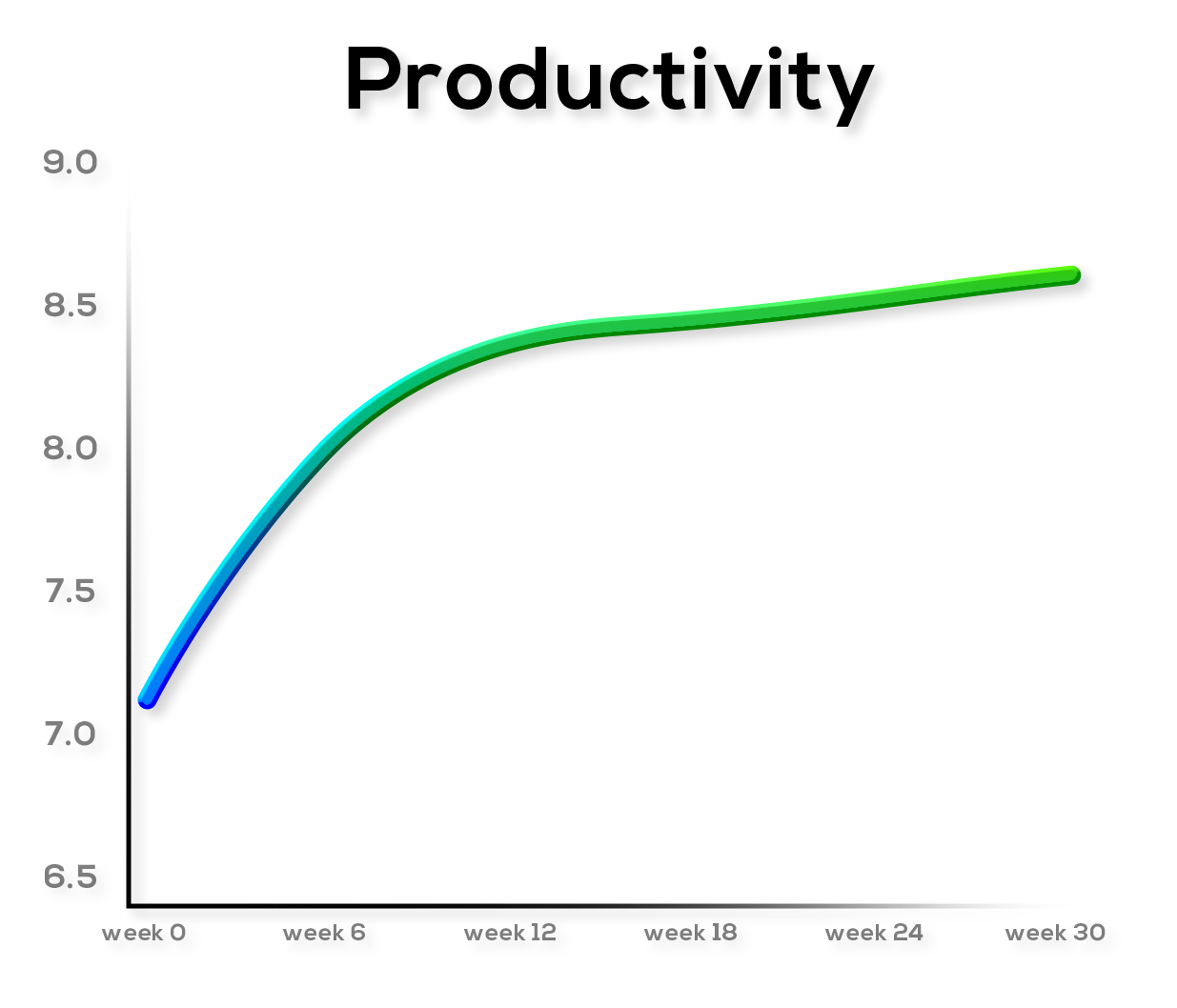
By the end of the trial, this number went up to 20%. These levels continue to grow thanks in large part to our new mindset, which has our teams constantly discovering new ways to work more effectively.
When it comes to productivity, the takeaway is that most of our teams reported being able to do as much work in 4 days as they used to do in 5 as the trial went on.
Many responded that they felt more focused and able to get things done. One person commented: “The feeling of scarcity makes you want to take the most out of each day.” Having those 3-day weekends all the time was making everyone feel extra refreshed and they were bringing that energy with them into the studio every Monday. About 15% of our employees even noticed an uptick in their productivity compared to the 5-day workweek.
While stress levels went up a bit when the trial was just getting going, the benefits became noticeable pretty quickly.
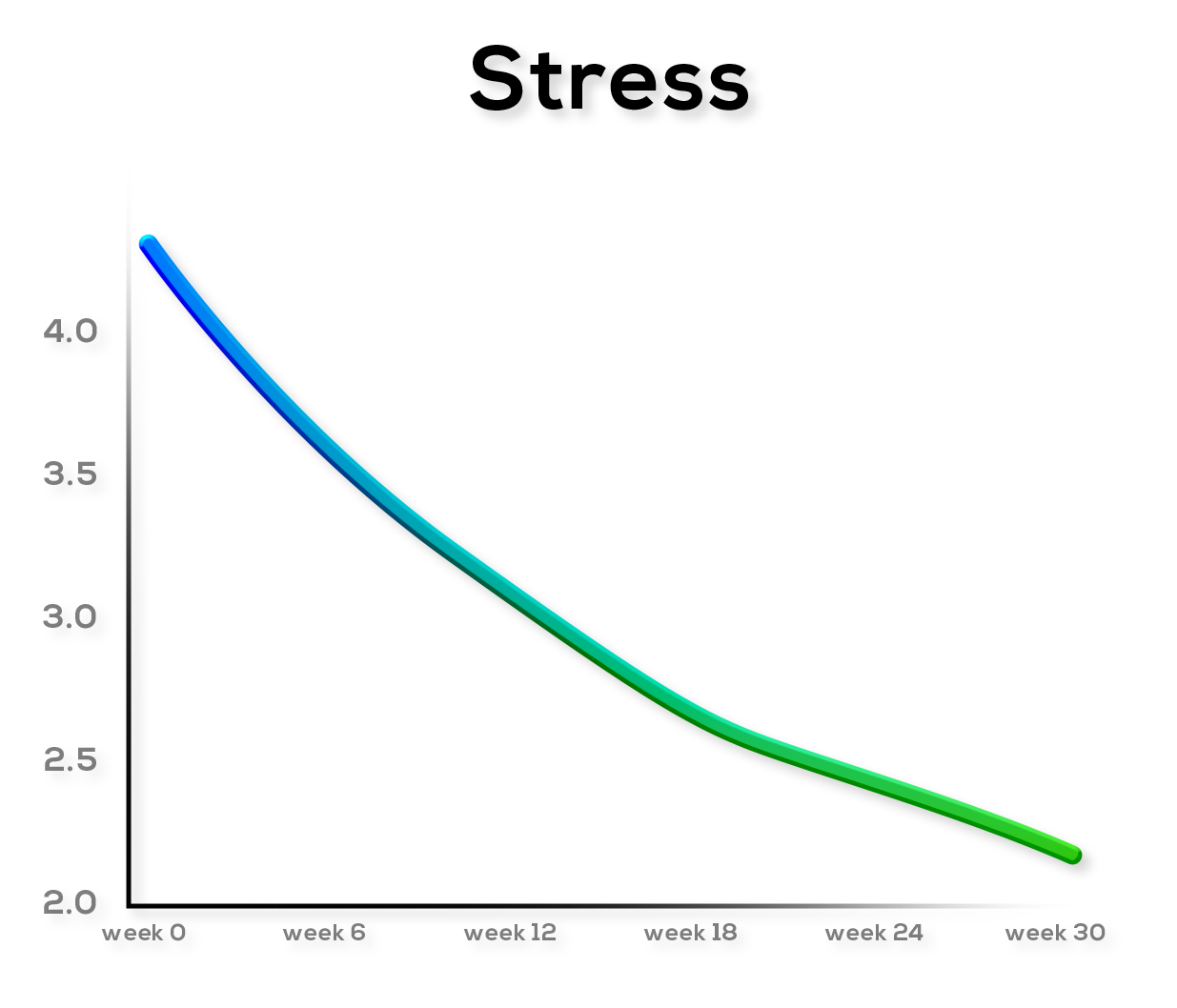
Thanks to our constantly improving processes, concerns over how to fit all of that work into a shorter workweek were short-lived. Reported stress levels went down a whopping 47% by the end of the trial, with one employee commenting: “My level of stress about reaching my weekly work is going down. I feel like I am getting better at focusing and deciding how best to spend time. The Friday off is really amazing.”
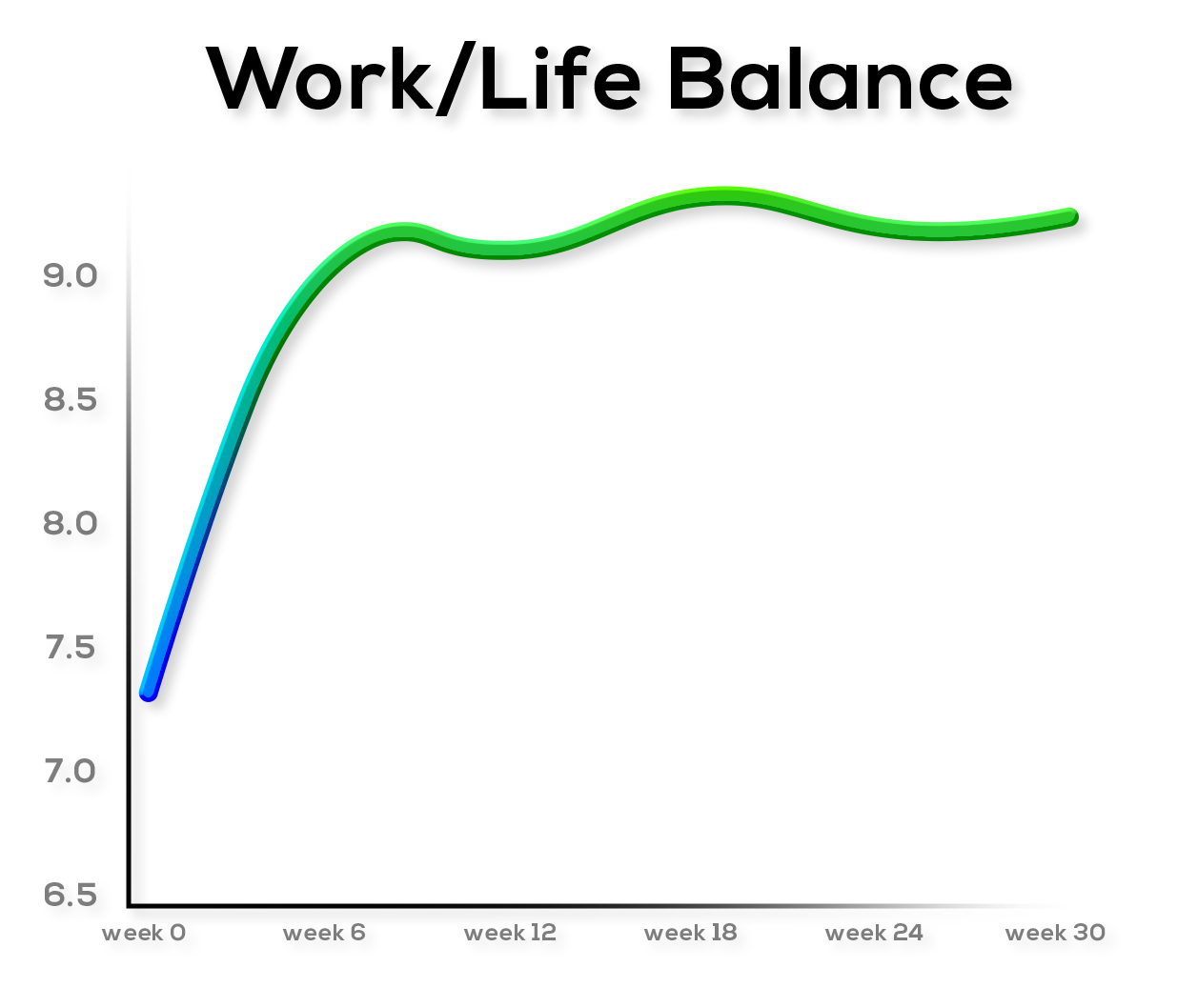
Those Fridays off were very much appreciated, with employees reporting a 22% increase in satisfaction with their work-life balance.
They were able to spend more time with their families, run errands, or just enjoy life. “I’m feeling better mentally, and I believe this will be noticeable in my work,” remarked one employee.
It’s absolutely no surprise then, that, when asked if they’d like to make this transition permanent, our teams responded with a resounding “yes!”
And it wasn’t just our employees who were excited about our move to the 4-day workweek. Gaming news outlets interested in the changing working culture at game studios started picking up on our story. In an industry that’s become a bit notorious for tight deadlines, stress, and “crunch time,” it felt great to stand out for embracing the idea of a good work-life balance.
As an added bonus, awareness of our studio in the industry increased as word got out about our experiment.

"Many candidates we reached out to in Europe were not previously aware that Bandai Namco had a studio in Barcelona, but now even candidates in USA or Canada have heard about BNM from 4-day work-week articles,” says Max Stuart, our Talent Acquisition Manager.
This led to an uptick in the number of talented industry professionals applying to work with us, which was very exciting.
By permanently moving BNM to a 4-day workweek, we hope to maintain all of the benefits we enjoyed during the trial period: a better work-life balance, increased productivity and creativity from the teams in our studio, and a more positive work environment for the people on those teams. This is a big step in making BNM a place that’s truly ‘Fun for all into the future. If you’re passionate about games and want to work somewhere that values your creativity and well-being, come join us at BNM.

Bandai Namco Mobile
Published: 06 June, 2023


